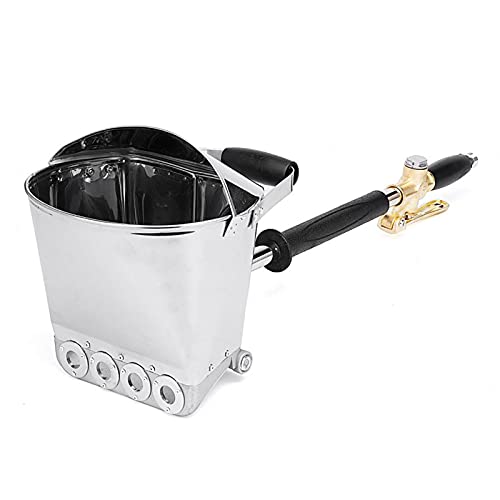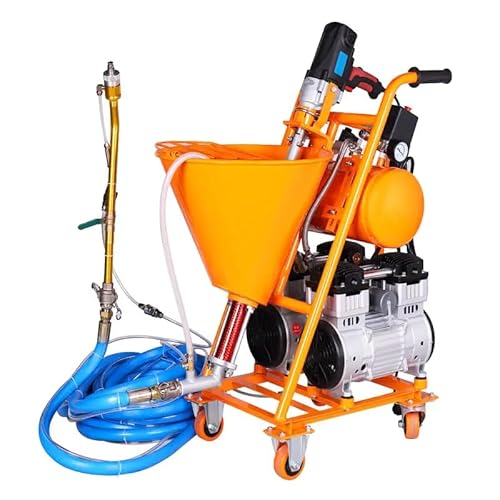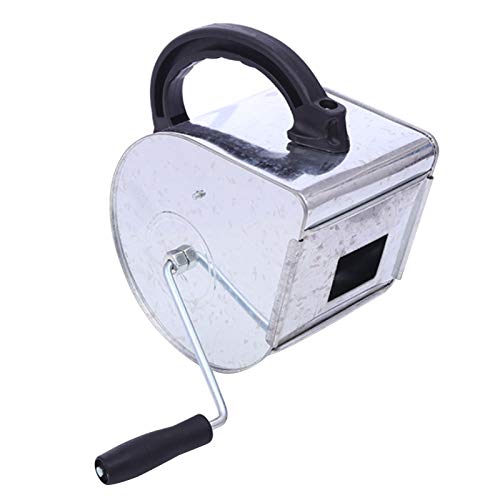Understanding What a Cement Sprayer Is and How It Works
What is a Cement Sprayer?
A cement sprayer is a powerful tool designed to make the application of cement, mortar, or other types of mixed materials quicker and more efficient. Unlike traditional methods which often involve trowels or buckets, a sprayer allows you to cover large areas uniformly with minimal effort. This tool works by mixing the cement with water and using compressed air to spray it onto surfaces, creating a smooth and even finish.
How Does It Function?
The operation of a cement sprayer involves a few key components. It starts with the mixing chamber where dry cement and water are combined. Once mixed, the resulting slurry is pumped into the spray nozzle. The sprayer uses air pressure to propel the mixture forward, giving you the ability to reach high or difficult spots with ease. This method not only saves time but also reduces the physical strain of applying cement manually.
Key Features to Look For in a Cement Sprayer
Capacity and Pressure Settings
When selecting a cement sprayer, consider its capacity, which affects how much material you can spray at one time. A larger tank means fewer refills and increased efficiency during your project. Additionally, adjustable pressure settings are crucial. They allow you to control the thickness of the application, ensuring that you achieve the desired finish, whether you need a thin mist or a thicker coat.
Ease of Use and Clean-Up
Look for designs that enhance ease of use. Features such as ergonomic handles and lightweight structures can make a significant difference, especially during long projects. Additionally, a sprayer that offers easy disassembly for cleaning will be beneficial. Cement can harden quickly, so being able to clean your equipment without hassle guarantees your sprayer will remain in good condition.
Choosing the Right Cement Sprayer for Your Project
Project Size Considerations
The scale of your project is a vital factor in choosing the right sprayer. For larger projects like commercial buildings or expansive driveways, a high-capacity airless sprayer is ideal. However, for smaller DIY jobs, a portable, electric sprayer may be more suitable. Think about your workspace and how accessible it is, as this can influence which model works best for you.
Type of Material Being Sprayed
Another consideration is the types of materials you will be spraying. Some sprayers are designed specifically for cement, while others can handle multiple materials such as stucco or plaster. Ensure that the sprayer you choose can accommodate the specific mix you will be using to avoid clogs and achieve optimal results.
Comparing Different Types of Cement Sprayers on the Market
Airless vs. Compressed Air Sprayers
Airless cement sprayers leverage hydraulic pressure to push the cement through the nozzle, allowing for a thicker application without overspray. This makes them ideal for large jobs that require precise control. Conversely, compressed air sprayers use air pressure to accomplish the same task but might produce more overspray, which is something to consider depending on your working environment and desired finish.
Electric vs. Gas-Powered Options
Electric cement sprayers are typically quieter, lighter, and easier to maintain, making them suitable for residential use. On the other hand, gas-powered options offer more mobility and are well-suited for larger or outdoor projects where access to electricity might be limited. Evaluate your specific needs to decide which power source aligns with your project requirements.
Tips for Maintaining Your Cement Sprayer for Longevity
Regular Cleaning Practices
Proper maintenance starts with regular cleaning. After each use, ensure to thoroughly clean the mixing chamber and spray nozzle with water to prevent cement residue from hardening. This will help maintain smooth operation and prolong the durability of your equipment.
Periodic Inspections
Conduct periodic inspections of your sprayer to check for signs of wear and tear, such as cracks or loose fittings. Addressing minor issues promptly can prevent larger problems down the road, ensuring that your sprayer operates efficiently whenever you need it.























